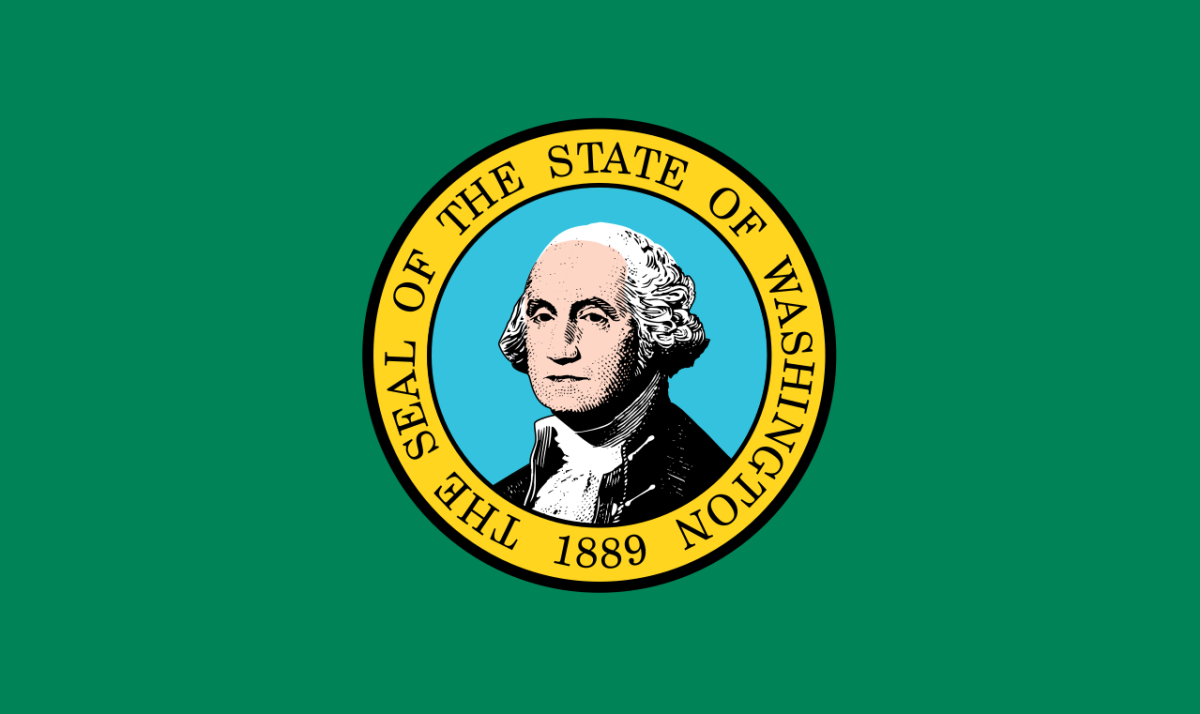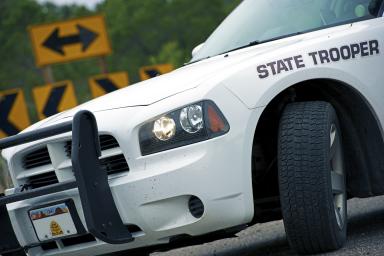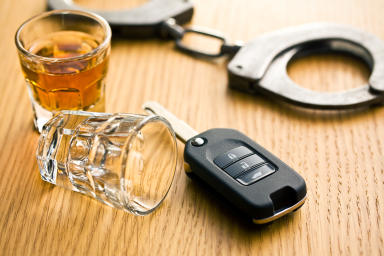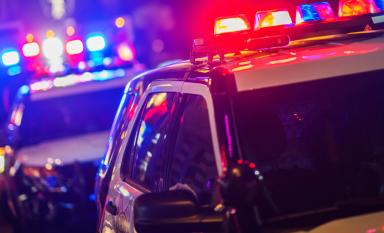Washington DUI Laws

One of the key issues the US perennially attempts to address is traffic fatalities. Washington State has done its share, as evidenced by its various programs. Unfortunately, the state's traffic death rate has risen in recent years, with impaired driving being one of the primary reasons. In 2021 alone, there were 314 alcohol or drug-related fatal collisions.
The Washington Traffic Safety Commission's Traffic Safety Annual Report 2022 reported that nearly three-fourths of unrestrained deaths from 2016 to 2020 involved an intoxicated driver. Also, more than one-third of crashes that resulted in serious injuries involved impairment, while three out of every four drivers aged 16 to 25 involved in fatal crashes tested positive for alcohol or drugs.
That said, if you have been injured in a drunk driving accident or have been charged with DUI, it is essential to understand your legal options. This article will give a detailed overview of Washington's DUI laws for the benefit of both plaintiffs and defendants.
General DUI Laws in Washington State
In Washington, it is unlawful to drive a vehicle while intoxicated. You can be charged with DUI if any of the following apply:
You have an alcohol concentration of 0.08% or higher within two hours after driving. For commercial drivers, the legal limit is 0.04%.
You have a THC concentration of 5.00 or higher within two hours after driving.
You are under the influence of any substance that can cause intoxication. These include alcoholic drinks, cannabis (even if marijuana is legal in the state), or other drugs.
You are under the influence of a combination of substances.
You can also be charged with DUI even if you are not driving the vehicle as long as you have physical control. This means you could be arrested for DUI even if you park your car in the middle of the road to sober up.
Aggravated DUI
You can be charged with aggravated DUI based on the following factors:
You have a BAC of 0.15% or higher.
You have passengers under the age of 16.
You refused a breath test.
You have caused serious injury or death.
Offenders charged with aggravated DUI receive harsher penalties than those charged with general DUI, such as increased jail time, fines, and felony charges.
Exemption for Cyclists
Intoxicated cyclists cannot be charged with DUI. This is because the definition of "motor vehicle" under state law does not include bicycles. They may face other criminal offenses, however, such as reckless driving, disorderly conduct, and reckless endangerment. A law enforcement official may also confiscate the bicycle if it is deemed necessary to reduce the threat to public safety and there are no other options.
Underage DUI in Washington State
Like other states, Washington has a zero-tolerance law for those under the age of 21. It is unlawful for minors to be in control of a motor vehicle if they have an alcohol concentration of 0.02% or higher. This law also applies to marijuana consumption, where minors may be charged with DUI if their THC is greater than 0.00 but less than 5.00. A minor DUI is treated as a misdemeanor.
Minors charged with DUI will have their license mandatorily suspended by the Department of Licensing for at least 90 days.
DUI-Adjacent Laws in Washington State
Open Container Law
Even if you are sober while driving, you may be charged with a crime if you have open alcohol containers while on the road or in public places. This is due to Washington's open container law, which makes it illegal not just to drink alcohol while driving but also to have open alcohol containers inside the vehicle. These include cans, bottles, flasks, cups, and glasses. The container does not need to be empty to be considered open. As long as the seal has been broken or some of the contents have been removed, it is an open container.
What Are the Penalties for DUI in Washington?
You will face various penalties if convicted of DUI in Washington, including fines, license suspension, and jail time. The severity of the penalties depends on the number of offenses committed within the past seven years.
Enhanced Penalties for DUI
If your BAC is 0.15% or higher, you will face the enhanced penalties listed below:
Your DUI offense will be considered a Class B felony if you have had three or more DUI convictions within the past 10 years. If you are charged with a Class B felony, you will receive a fine of up to $20,000 and a prison sentence of up to 10 years. Moreover, you may receive a felony charge if you were previously or are currently convicted of vehicular homicide or assault. Vehicular homicide, in particular, is a Class A crime punishable by a maximum $50,000 fine and life imprisonment.
Additional Penalties for Having Minors in Your Vehicle
If you are convicted of DUI while driving a vehicle with someone under 16, you will face additional penalties based on the number of minor passengers. Your ignition interlock device will be installed for an additional 12 months for each underage passenger in the car (18 months if the BAC is 0.15% or higher). You may face additional jail time and fines depending on the number of minors.
Implied Consent Law
Like other states, Washington has an implied consent statute specifying that drivers are presumed to have provided their consent to undergo testing to determine their alcohol concentration level. If you are arrested for DUI, you have already consented to chemical testing by the arresting officer.
While you have the right to decline testing, doing so will result in penalties. Your license will be suspended for at least 90 days, and your refusal may be used in a criminal trial.
License Suspension Following Arrest
A DUI conviction is not the only way to have one's driver's license suspended. The Washington State Department of Licensing may suspend your license following your arrest. The suspension will begin 30 days after your arrest.
If you do not want your license suspended after an arrest, you can request a hearing and contest the suspension there. A hearing examiner will decide whether or not to suspend your license. Keep in mind that you only have seven days to file your request.
If the hearing examiner does not rule in your favor, your license will be suspended. Depending on your previous DUI convictions and the gravity of the offense, it can be suspended for 90 days to two years.
Washington’s Dram Shop Law
Suppose that you, as the victim, plan to file a case against a drunk driver for your injuries. There are instances wherein more than one party can be held accountable for your losses. You can seek additional compensation if others may have been responsible for the offender. Let's say the driver got even more intoxicated in a bar before the crash. Can you also sue the establishment? The answer is yes. Dram shop laws allow plaintiffs to hold bars liable for their injuries and losses. Washington State has two specific dram shop statutes, one for adults and one for those under 21.
Dram Shop Law for Adults
Under RCW 66.44.200, it is illegal for dram shops to sell or serve alcohol to adults who are already intoxicated. This statute also prohibits people under the influence from buying or drinking alcohol in any licensed establishment. Violating this code can result in a fine of up to $500.
Dram Shop Law for Minors
It is also illegal for dram shops to sell or serve alcohol to minors (whether they were drunk or sober before coming into the establishment). Moreover, the law applies to any person who has minors within their premises, motor vehicles, and watercraft. For instance, you are hosting a party in your home with your friends, some of whom are under 21. If you are caught giving alcoholic beverages to minors, you may face penalties. In addition, this is applicable if the event is hosted in a yacht, limousine, bus, or any motor vehicle. People who violate this statute may face a gross misdemeanor.
Minors are not permitted to possess, purchase, or consume alcohol. It is also illegal for them to be visibly intoxicated in public unless a parent or guardian accompanies them. To be found in violation of this statute, their breath must smell like alcohol, they must have or be close to a container of alcohol, or they must display actions indicative of intoxication. Minors who violate this code may face a gross misdemeanor.
There are, however, exceptions to this rule. It cannot be applied if the minor is given alcohol by a parent, guardian, dentist, or physician for medicinal purposes. This also does not apply if the alcoholic beverage is utilized for religious purposes and the amount drank is a minimal amount necessary for the service. Participating in the Lord's Supper/Communion or the Eucharist, which is held in most churches, is an example of this. Minors participating in scientific research with specific permits are exempted as well.
How Much Can Someone Sue for a Drunk Driving Injury in Washington?
If you have been injured or your loved one has died in an accident caused by a drunk driver in Washington, you can sue them for compensation. The primary type of damages awarded to plaintiffs is known as compensatory damages. These are designed to help you get back on your feet and cover any expenses or losses you may have incurred in an accident. There are two types of compensatory damages: economic and non-economic.
Economic damages are computable and monetary. These include medical bills, lost wages, and other related expenses. On the other hand, non-economic damages are more subjective and non-monetary, such as pain and suffering, loss of companionship, disfigurement, and emotional anguish. There is no damage cap on economic and non-economic damages in Washington.
Punitive damages can be awarded in specific circumstances. These are typically given to punish the offender if their conduct is proven to be malicious, intentional, or outrageous. While punitive damages are awarded in other states, Washington is one of four states that do not allow them in personal injury lawsuits. They are only granted when expressly allowed by law.
Washington's Negligence Rule
Washington is one of the few states that use pure comparative negligence for personal injury cases. This means the victim can receive compensation even if they are 99% at fault for the accident.
For example, suppose a drunk driver crashes into a vehicle you are driving one evening. The court finds that you are 50% to blame for the accident (your brakes needed replacement, you were speeding before the collision, or you failed to stop at a red light). Even if there is a high proportion of negligence, you can recover damages but only half of the overall amount. That is, if the total damages are $100,000, you can only receive $50,000 because you are partially responsible for the accident.
If you are 100% at fault for the crash, you may not receive any compensation.
The Statute of Limitations in Washington
There are statutes of limitations for filing a claim or lawsuit in Washington. For personal injury and property damage cases, the time limit is generally three years from the date of the accident.
In some situations, the three-year statute is temporarily suspended. One of the scenarios in which this is true is if the plaintiff has a legal disability. According to state legislation, you have a legal disability if you are under 18, are imprisoned, or have a condition that prevents you from understanding the nature of the proceedings. When the legal disability ends, the time limit will resume.
But what happens if the defendant is out of the state or goes into hiding? In this case, the statute of limitations is paused until they return to Washington.
Resources for Folks Injured by an Impaired Driver in Washington
Washington Traffic Safety Commission
The Washington Traffic Safety Commission is the state's highway safety office responsible for planning, evaluating, and implementing various road safety programs. The Washington Impaired Driving Advisory Council is one of these, where related agencies and groups meet with Traffic Safety Commissioners to develop plans to reduce impaired driving. It also has traffic safety resource prosecutors, Target Zero teams, and drug recognition experts to keep track of drunk driving incidents. Other activities include high-visibility enforcement campaigns and support for mobile impaired driving units and ignition interlock programs.
Northwest Justice Project
The Northwest Justice Project, Washington's largest publicly funded legal aid program, provides free legal assistance to low-income individuals, families, and communities throughout the state. Job conditions, access to dispute resolution options, and transportation are some of the civil matters handled by the program’s lawyers and paralegals. People can apply for its services online. Furthermore, it runs Washington Law Help, a website containing self-help forms, answers to numerous legal queries, and other relevant resources to assist residents with their legal concerns.
Washington State Patrol
The Washington State Patrol is a law enforcement agency that works daily to safeguard residents and decrease fatalities on the road. In the case of impaired driving, it provides various services to assist law enforcement in implementing traffic safety and DUI protocols, such as ignition interlock regulation, drug evaluation and classification, and evidential breath testing. Its personnel are also in charge of investigating accidents, enforcing traffic laws, and assisting drivers.
Expertise.com StaffAuthor
Step into the world of Expertise.com, your go-to hub for credible insights. We don't take accuracy lightly around here. Our squad of expert reviewers, each a maestro in their field, has given the green light to every single article you'll find. From rigorous fact-checking to meticulous evaluations of service providers, we've got it all covered. So feel free to dive in and explore. The information you'll uncover has been stamped with the seal of approval by our top-notch experts.




